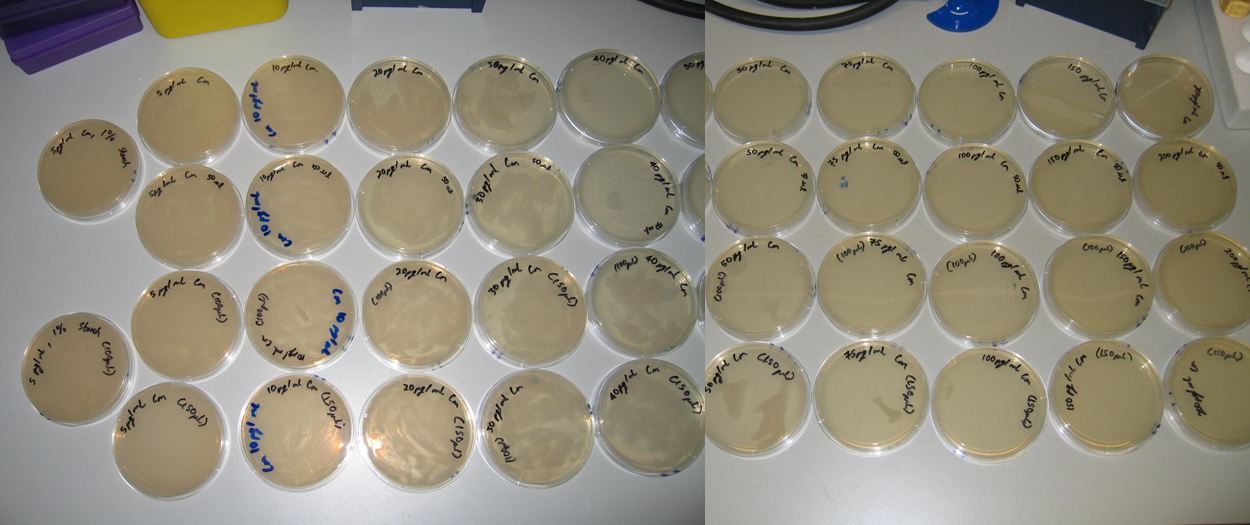Team:Imperial College/CAT
From 2008.igem.org
m |
m |
||
| Line 14: | Line 14: | ||
{{Imperial/Box1|| | {{Imperial/Box1|| | ||
====Results==== | ====Results==== | ||
| - | [[Image:CAT_Results.PNG{{pipe}} | + | <br> |
| - | [[Image:CAT_Working_Concentration.PNG{{pipe}} | + | [[Image:CAT_Results.PNG{{pipe}}660px{{pipe}}center]] |
| - | + | [[Image:CAT_Working_Concentration.PNG{{pipe}}700px{{pipe}}center]] | |
| + | <br> | ||
The construct containing the CAT gene was integrate into the ''B. subtilis'' genome for characterisation. As such, the CAT gene is single copy only. CAT will be able to protect a cell from higher levels of chloramphenicol if it is present in a construct on a plasmid (particularly a high copy number plasmid) | The construct containing the CAT gene was integrate into the ''B. subtilis'' genome for characterisation. As such, the CAT gene is single copy only. CAT will be able to protect a cell from higher levels of chloramphenicol if it is present in a construct on a plasmid (particularly a high copy number plasmid) | ||
| + | |||
| + | Chlorampehnicol can be used for selection up to a concentration of 30μg/ml. If a higher concentration is required, a bacterium possesing a single highly expressed copy of chloramphenicol acetyltransferase can survive (with difficulty) | ||
| + | at up to 75μg/ml of chloramphenicol. | ||
}} | }} | ||
<br><hr>{{Imperial/EndPage|Major_Results|Major_Results}} | <br><hr>{{Imperial/EndPage|Major_Results|Major_Results}} | ||
Revision as of 00:07, 30 October 2008
Chloramphenicol Acetyltransferase Characterisation
|
|||||||||||
 "
"


